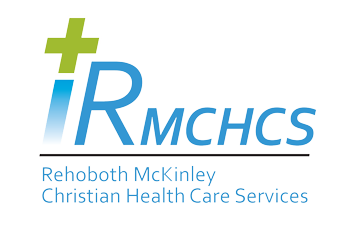Patients
- Admissions and Discharge
- Advance Medical Directives
- Case Management
- Chaplaincy Services
- Comments, Compliments & Complaints
- Daisy Award
- Infection Control
- Interpretive Services
- Medical Records
- Patient Education
- Patient Safety and Speak Up
- Rapid Response Team
- Rights and Responsibilites
- Security
- Patient Mobile Survey
- Pay My Bill
- Patient Portal
- Price Transparency
- Pricing Information
- Notice of Privacy Practice (Eng)
- Notice of Privacy Practice (Spa)
HEALTH INFORMATION MANAGEMENT (HIM)
MEDICAL RECORDS
Health Information Management also referred to as Medical RecordsThe name of the department that is responsible for managing a patient's medical record information or data via the practice of acquiring, analyzing and protecting the digital, paper or hybrid traditional medical information that is vital to providing quality patient care.
Health information management is the collection of information pertaining to a patient who has been admitted, treated in the Emergency Department or Outpatient Care setting by a physician or other licensed authorized healthcare provider. The patient information that is collected during the visit is maintained in the Health Information Management or Medical Records Department. Health Information Management professionals are responsible for the collection, analysis, storage and protection of the quality of the patient's health information. The information collected can be paper-based, hybrid (combination of paper or digital) or a fully electronic health record (EHR).
Health Information Management or Medical Records professionals work with physicians and other ancillary healthcare providers. They are responsible for ensuring that HIPAA laws that protect patient privacy, data analysis and how to harness computer systems that collect data are followed. They are also responsible for coding medical record data to ensure that the healthcare receives timely financial reimbursement for services rendered during a patient's encounter with the healthcare system.
To summarize in short, Health Information Management or Medical Records is responsible for ensuring the availability, accuracy, and protection of the clinical information that is needed to deliver healthcare services and for the healthcare provider to be able to make appropriate healthcare-related decisions about a patient's treatment plan. They ensure that a patient's health information and records are complete, accurate, and protected.
Frequently Asked Questions (FAQ) about Health Information Management/Medical Records
1. Who has access to my medical records?
Patient medical records are confidential and shall not be released, nor the information contained therein disclosed, except in accordance with legal requirements and Rehoboth McKinley Christian Health Care Services. Although the information contained within the medical record belongs to the patient, patient medical records are the property of Rehoboth McKinley Christian Health Care Services. Patient medical records are maintained in accordance with legal, accrediting, and regulatory requirements. N.M. Stat. §24-14A-8 notes that any health information collected under the health information management system is confidential and not accessible by the public. All information contained in an individual's medical record is confidential and cannot be disclosed without the consent of the individual, except in certain circumstances. However, the law allows disclosure of confidential information to government agencies, educational institutions and certain providers. Confidential information may be used in studies but cannot be released to the public unless the information has been de-identified. Results of testing for HIV and STDs must remain confidential unless being used for research purposes or as part of mandatory reporting requirements.
2. How long does the healthcare facility (hospital) or physician need to retain medical records?
Under New Mexico State Law (Retention, maintenance, and Destruction of Medical Records - N.M. Code R. §16.10.17.10) Retention, Maintenance, and Destruction of Medical Records Healthcare Facilities and Physicians must retain the medical records for at least 10 years after the date of last treatment. Radiology X-ray films must be kept for 4 years after the date of exposure. In the case of minor children, the X-ray films must be kept until the child reaches the age of 19. The records of minors must be retained until the patient is 21 years old. If converted to electronic form, a hospital and/or physician must retain the hard copy of a record for 30 days. Healthcare facilities and physicians must keep billing information for at least 2 years after the date of last treatment. Healthcare facilities and physicians must provide every patient with a written copy of their policy for medical record retention, maintenance, and destruction. A log must be kept of all medical records destroyed, including the patient's name and date of record destruction.
3. What is a legal guardian, curator, or personal representative?
If the patient is deceased or lacks the capacity to consent, copies of patient records may be released, upon the written request to the patient's guardian, curator, or personal representative. The requester shall present proof of court appointment as guardian, curator, or personal representative. The existence of a personal representative means a person claiming to be the next of kin is not entitled to a copy of the patient record, unless the personal representative authorizes the release of the record, in writing, to the next of kin.
4. Who is considered the next of kin? What identification is required to obtain a medical record?
If the patient is deceased, the patient's personal representative or the family member who stands in line of intestate (without a will) succession shall provide authorization.
5. What identification is required to obtain a medical record?
Prior to the release of patient medical record information, the requesting party shall be required to provide proof of identification by providing a legally accepted picture identification, i.e. driver's license, passport, state ID, etc.
6. How long do I have to wait in order to get a copy of my medical records?
The healthcare facility (hospital) must let you see your medical record or give you a copy of it no later than 30 days or 60 days if your records are kept off-site after they receive your request. The healthcare facility (hospital) can get one 30-day extension.
To ensure quality and accuracy, we require five business days to process requests for medical records.
A covered entity must act on an individual's request for access no later than 30 calendar days after receipt of the request, see 45 CFR 164.524(b)(2) of the Privacy Rule. We try to complete requests within 5 business days. Requests for multiple/extended visits may take longer than 5 days.
Your healthcare provider can deny your request to see or get a copy of your medical record, but only for a few reasons, i.e. if your provider believes that letting you see your record might physically endanger you or another person, they can deny your request.
The rules that control whether a provider can deny your request to see or get a copy of records related to mental health or substance abuse conditions or treatment may be different.
7. Can the healthcare facility or my providers charge me for copying my medical record?
Yes. Generally, healthcare providers may charge you a reasonable, cost-based fee for copying your medical record. The fee can include the cost of supplies and the labor for making copies.
8. How do I obtain a copy of my child's medical records?
In general, the written authorization of a parent or guardian is required to release patient records of a minor; however, if a minor is authorized by law to consent to his/her medical treatment, parents are not entitled to the patient information and the minor is the appropriate person to provide authorization for the release of his/her medical records. Patient records of minors are otherwise governed by the same rules that apply to the release of adult patient medical records.
9. How do I obtain copies of my lab results?
Under recent changes to the Clinical Laboratory Improvements Amendments (CLIA) and HIPAA regulations, labs are now permitted, and sometimes required, to provide completed lab test results directly to patients. HHS has recently updated the regulations implementing both HIPAA and the Clinical Laboratory Improvements Amendments of 1988 (CLIA) to allow labs to release test results directly to patients or their authorized representatives. A release of information form must be completed prior to the issuance of lab test results. The Health Information Management Department can assist with completing the release of information form. You may contact them at (505) 863-7265. To send a fax, please dial (505) 863-7214.
10. How do I obtain copies of my radiology report?
Radiology image requests are available to you on a computer disc (CD). To request a copy of your radiology report, you must first complete a release of information form. Once the request for release of information has been completed, contact the Radiology Department where the images were performed. The healthcare organization (hospital) or provider may charge you a reasonable cost-based fee for copying X-rays, fetal monitoring strips and other records not in standard form. The Health Information Management Department can assist with completing the release of information form. You may contact them at (505) 863-7265. To send a fax, please dial (505) 863-7214.
11. How can I correct an error in my medical record?
When you want to have information added to or deleted from your medical record to make it more complete or accurate, you can. The HIPAA Privacy Rule calls this the right to amend your medical record. If this happens, you have the right to add you own short statement to your medical record. You do not have the right to have information that is already in your medical record removed or altered. You only have the right to add more information. If you disagree with your provider's diagnosis, you cannot amend it. The right to amend your record is not supposed to be a chance to dispute a diagnosis. It is meant to give you the chance to correct your record by adding information to it. It generally should take no more than 60 days after your request to amend your record after your request is received. It can take longer if your healthcare (hospital) or provider is unable to act within 60 days, they can get one 30-day extension to respond.
12. I used to be a patient at Rehoboth McKinley Christian Health Care Services, but I moved. How do I coordinate Out of State Transfers?
If you are out of the state of New Mexico and would like your medical records sent to your doctor, please send a letter requesting that your medical records be sent to your doctor, including the name of your physician, his/her address, phone number and fax number. Please include your full name, date of birth, date of discharge, address and phone number in case we need to contact you. You may print the Authorization of Release page or the PDF file, fill it out completely and mail it in. There is no fee for this service. If you are out of the state of New Mexico and would like a copy of your medical records for yourself, please complete the Authorization of Release page or the Pdf file, fill it out completely, including your full name, date of birth, date of discharge, address and phone number in case we need to contact you. A fee may apply for this service.
For questions, please call 505-863-7265
To send a fax dial 505-863-7214
Please include a records request along with a signed release of records from the patient











